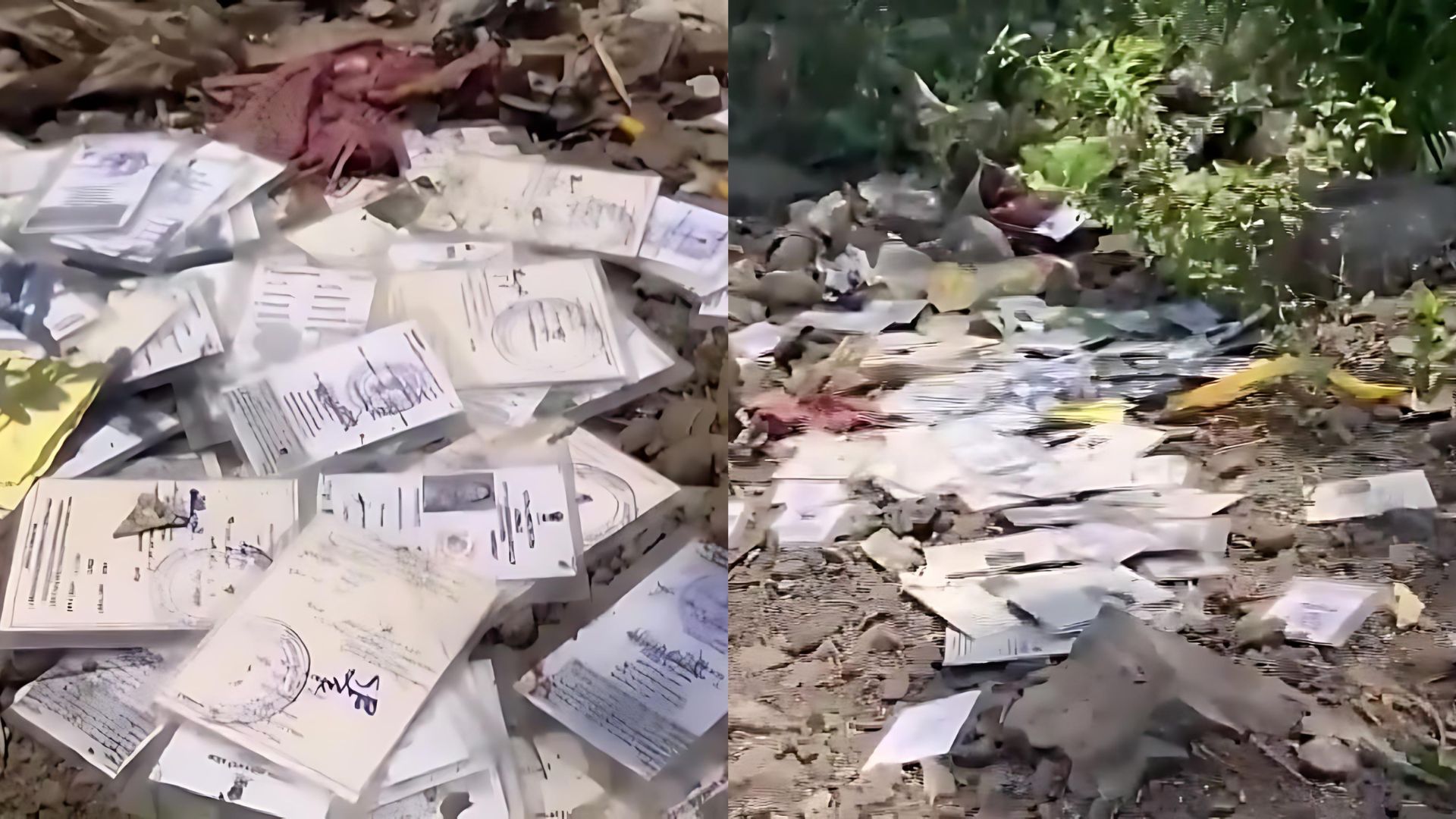A disturbing incident came to light on Friday as a video surfaced showing a significant number of voter ID cards strewn across Maharashtra’s Jalna Lok Sabha constituency. This discovery, just days before the fourth phase of the Lok Sabha elections scheduled for May 13, has sparked widespread concern and calls for an investigation.
The video, shared on social media platforms including X (formerly known as Twitter) by news agency ANI, captures the voter ID cards being discarded near a roadside garbage bin. The footage quickly went viral, drawing attention to the issue and raising questions about the security and integrity of the electoral process.
#WATCH | Jalna, Maharashtra | Voter cards found in the garbage, investigation underway. pic.twitter.com/YB8yqH1jOL
— ANI (@ANI) May 10, 2024
Jalna Collector Dr. Sri Krishnanath Panchal addressed the incident, confirming that the voter ID cards found were old and had been abandoned by an unknown person. Immediate action was taken upon receiving the information, with Jalna sub-divisional officials swiftly responding to the scene and seizing the discarded cards. An ongoing investigation aims to uncover the circumstances behind this alarming discovery.
Speaking on the matter, Krishnanath stated, “We are investigating whether the individuals whose voter ID cards were found have obtained new cards from the Election Commission. Additionally, we are looking into whether this was an intentional act of disposal and where the cards originated from. Rest assured, the person responsible will be identified, and appropriate action will be taken.”
As authorities delve deeper into this incident, voters and citizens alike remain vigilant, emphasizing the importance of safeguarding the electoral process and ensuring that such lapses in security are promptly addressed.


















